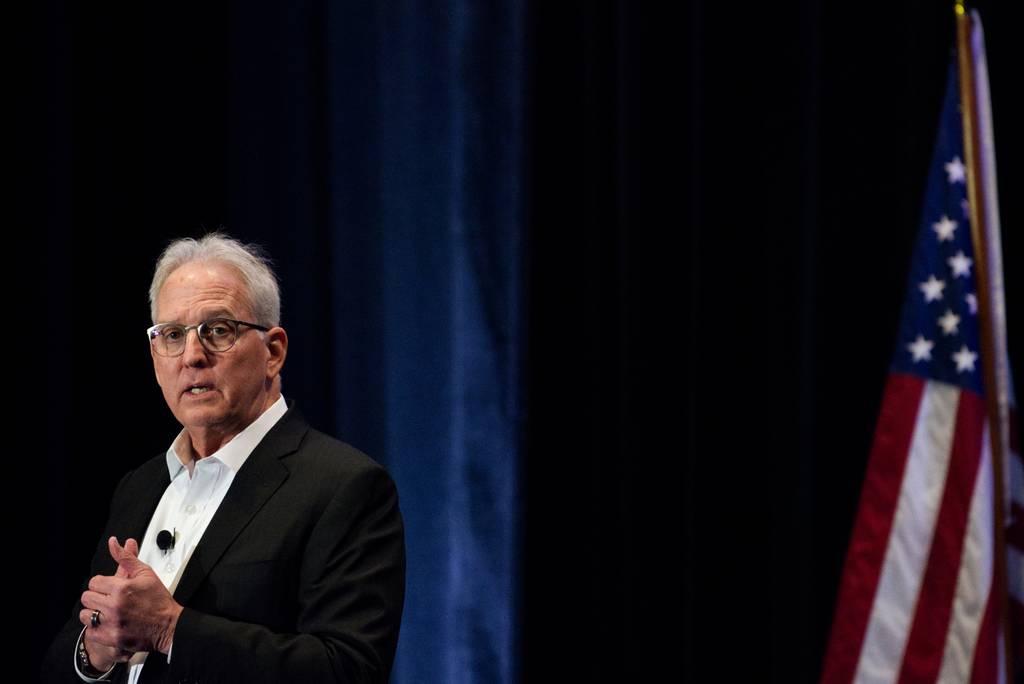
The U.S. Department of Defense’s artificial intelligence office is enfeebled by a lack of appropriations from Congress and is having to scuttle some efforts to sustain others, its leader said.
“We have to cannibalize some things in order to be able to keep other things alive,” Craig Martell, the Defense Department’s chief digital and AI officer, or CDAO, told reporters Feb. 22.
Congress has yet to pass a full defense budget for fiscal year 2024, which began Oct. 1, even as the Biden administration readies its fiscal 2025 spending blueprint. At least 40 continuing resolutions, or stopgap funding bills, have been enacted since 2010.
That record of funding uncertainty hurts talent and training initiatives as well as what’s known as the AI scaffolding, or the virtual infrastructure that makes models usable, accurate and relevant to the military, Martell said.
“That kind of behavior, of being agile, sitting next to the operator, building and growing and building and changing and building and iterating, is very difficult, if not impossible, to do under the conditions of a continuing resolution,” he said on the sidelines of the Defense Data and AI Symposium in Washington.
The Defense Department sought $1.8 billion for AI in fiscal 2024. The department is juggling hundreds of AI-related projects, including some associated with major weapons systems such as the Joint Light Tactical Vehicle and the MQ-9 Unmanned Aerial Vehicle, the Government Accountability Office reported.
While the CDAO is relatively new — having been announced in 2021 and hitting its first full strides in 2022 — making the case for its existence and expenditures isn’t difficult, according to Martell, who previously worked on machine learning at Lyft and served an associate chairman of computer science at the Naval Postgraduate School.
The public and private sectors are increasingly interested in AI and other pattern-recognition capabilities, and digital competition with China is steaming ahead. The Defense Department’s connectivity campaign known as Combined Joint All-Domain Command and Control hinges on data-and-analytics advancements made by the CDAO, as well.
Martell said he considers the budget struggles a normal part of the give and take in Washington.
“I don’t take the continuing resolution to be a slight against us,” he said.
Colin Demarest is a reporter at C4ISRNET, where he covers military networks, cyber and IT. Colin previously covered the Department of Energy and its National Nuclear Security Administration — namely Cold War cleanup and nuclear weapons development — for a daily newspaper in South Carolina. Colin is also an award-winning photographer.
- SEO Powered Content & PR Distribution. Get Amplified Today.
- PlatoData.Network Vertical Generative Ai. Empower Yourself. Access Here.
- PlatoAiStream. Web3 Intelligence. Knowledge Amplified. Access Here.
- PlatoESG. Carbon, CleanTech, Energy, Environment, Solar, Waste Management. Access Here.
- PlatoHealth. Biotech and Clinical Trials Intelligence. Access Here.
- Source: https://www.defensenews.com/artificial-intelligence/2024/02/23/pentagon-ai-office-must-cannibalize-to-keep-operating-martell-says/



